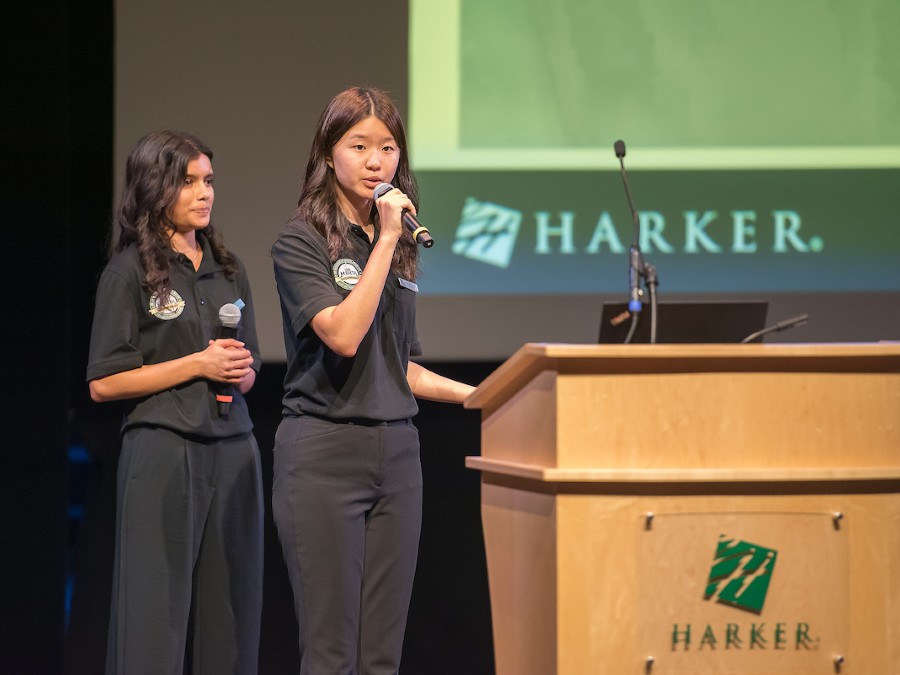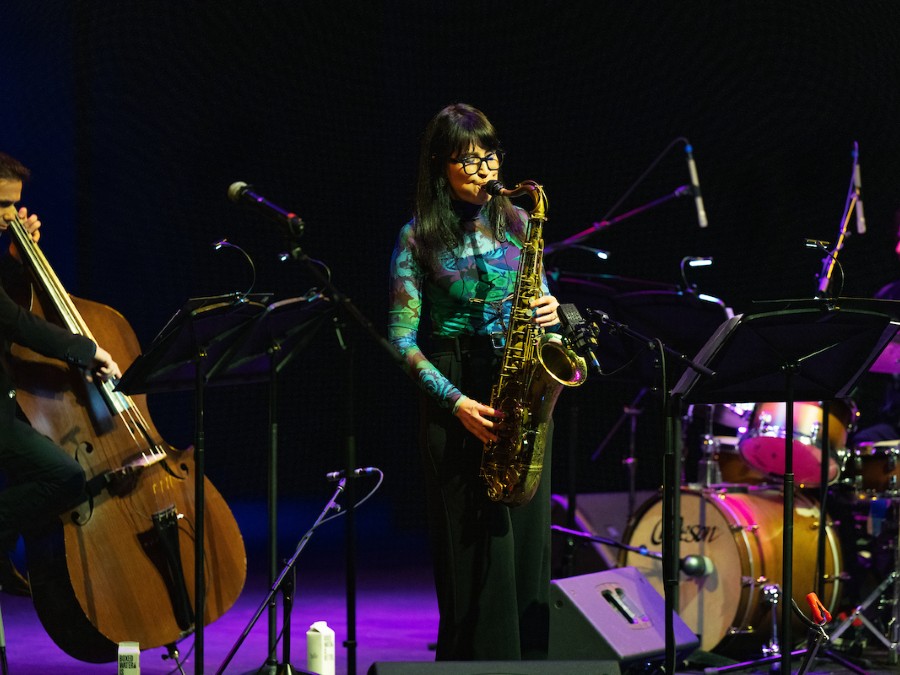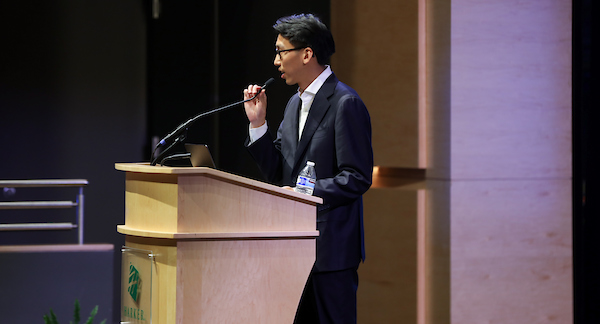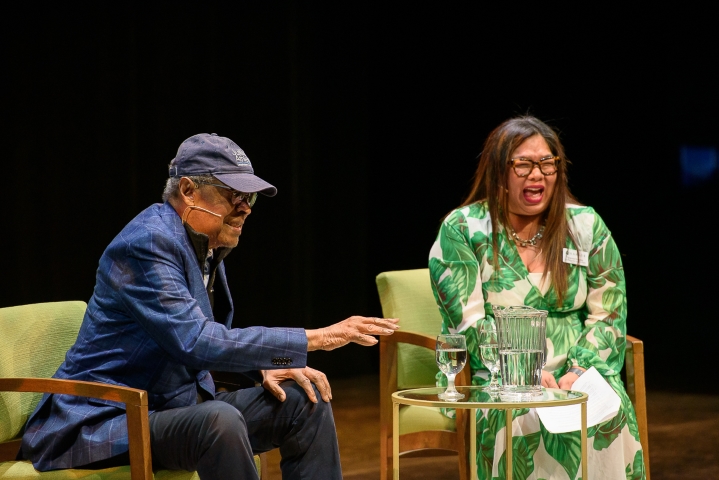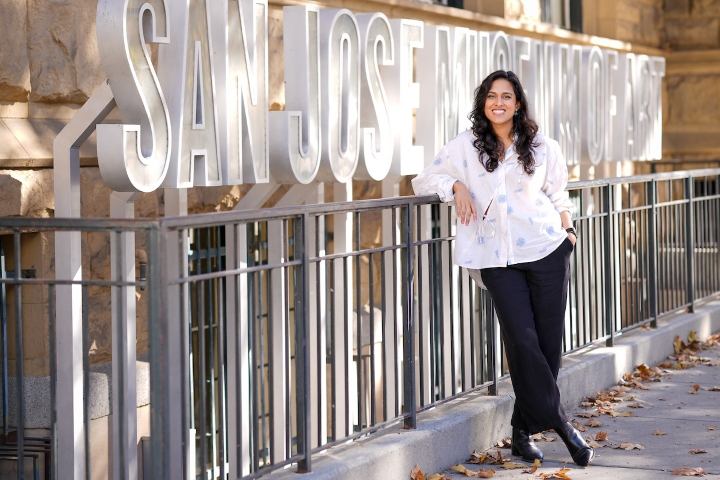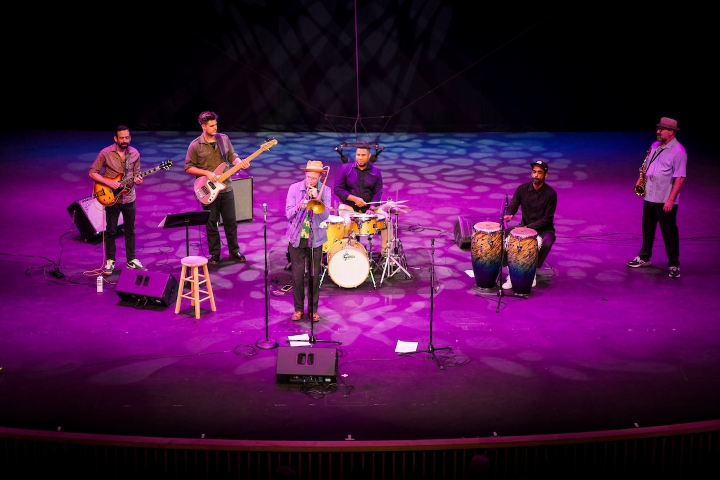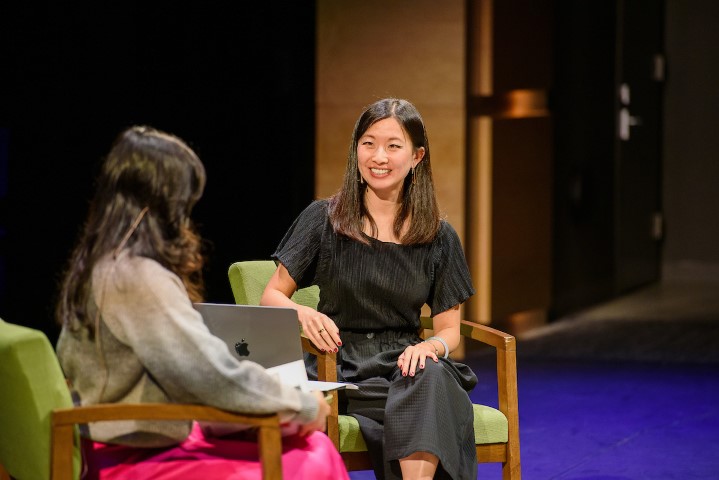Harker families, students and alums visited the Rothschild Performing Arts Center on Sept. 19 for the Venture Investment Initiative Strategic Ecosystem Gathering.
Schoolwide
14th Concert Series opens with Kirsten Edkins Quintet
Kirsten Edkins and her quintet opened the 14th season of the Harker concert series at the Patil Theater on Sept. 5.
19th Research Symposium investigates “AI Trends” with talks by tech luminaries, students and alums
More than 600 registrants flocked to the upper school campus on April 12 for the 19th annual Harker Research Symposium: “AI Trends: The Future is Now.”
Clarence B. Jones shares experiences and lessons at second annual MLK Jr. celebration
Harker held its second annual Martin Luther King, Jr. celebration featuring Dr. Clarence B. Jones, who served as King’s lawyer and speechwriter.
Performing arts chair to release “The Cancer Parent’s Handbook” in February
Laura DeKraker Lang-Ree, Harker’s K-12 performing arts director, recently completed work on her first book, titled “The Cancer Parent’s Handbook: What Your Oncologist Doesn’t Have Time to Tell You.”
Harker Magazine: Nidhi Gandhi ’11’s Journey Back to Art
Read the full profile on Nidhi Gandhi ’11 in the Fall/Winter 2024 issue of Harker Magazine, now in digital format and arriving in print during the winter break!
Harker Magazine: 15 Seasons of the Harker Concert Series
Now in its 15th season, the Harker Concert Series has offered unique value to students, granting them access to some of the world’s greatest musicians, be they widely celebrated veterans or up-and-coming acts.
Connie Zheng discusses processes, seeds and maps at Harker Speaker Series
Oakland-based artist Connie Zheng gave attendees an in-depth look into her processes and the experiences that inform them at the Harker Speaker Series.
